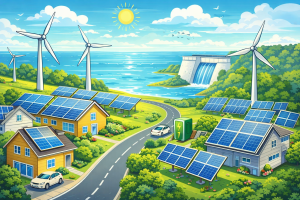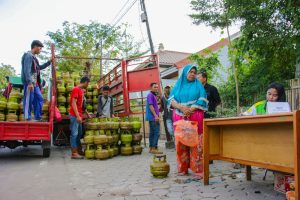Jakarta—Climate change threatens the resilience of global coffee production, including in Indonesia. It suppresses land productivity and threatens the welfare of more than 100 million coffee farmers around the world.
According to Earth.com data, the world’s population consumes 2.2 billion cups of coffee every day. However, this high demand is not in line with the conditions on the ground. Environmentally unfriendly farming practices and a lack of technological adaptation exacerbate the impact of the climate crisis on the coffee industry.
Roberto Alonso Vega Alfaro, Vice President of Global Coffee Agronomy, R&D, and Sustainability at Starbucks, emphasised that climate change is no longer an issue of the future, but a reality that coffee farmers face today.
“Farmers are facing soil degradation and water shortages due to climate change. They need a more modern and sustainable approach to agriculture,” Roberto said in a media discussion session after the Lecture Series at World of Coffee last weekend.
According to him, Starbucks built 10 farmer support centres in various countries, including one in Berastagi, North Sumatra, where local coffee farmers get hands-on training on climate impact mitigation techniques, including utilising agricultural waste and saving water.
Coffee waste can be “gold”
Roberto explains that most coffee fruits are only used to a small extent. “Of the coffee fruits harvested, only 20 per cent are consumed. However, this waste can be golden. We can make it into a natural compost that replaces chemical fertilisers. It helps restore soil fertility,” he explains.
Apart from soil, the issue of water scarcity is also crucial. Roberto mentioned that the training centre in Berastagi has been equipped with water-saving coffee processing machines that can cut water consumption by 50 per cent.
However, Roberto does not deny that changing habits is the biggest challenge in spreading this sustainable practice. “Changing generations of tradition is not easy. Bringing innovation to the field may look simple, but in practice it is very complex,” he said. (Hartatik)
Banner photo: Adam Lukac/pexels.com















